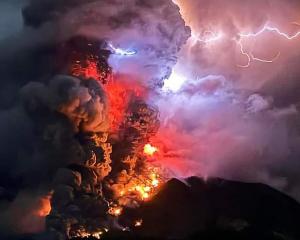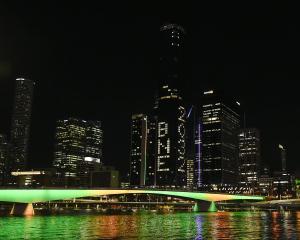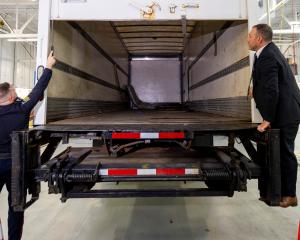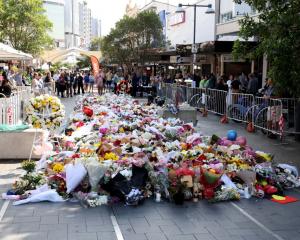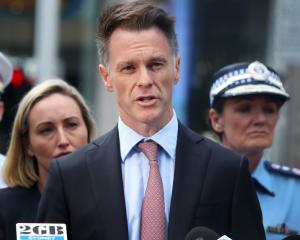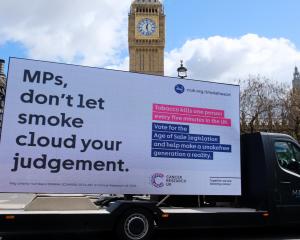A gun attack targeting the heart of Canada's government has shaken the country's closely guarded image as a sanctuary from the kinds of mass violence that plague the United States.
Canadian cities and towns hiked security around government buildings, schools and mass transit systems after a gunman entered Ottawa's parliament building, leading to gunfire near a room where Prime Minister Stephen Harper was holding a meeting. The gunman was shot and killed.
Media reports said the gunman had earlier shot dead a soldier at the nearby National War Memorial, though police said they could not immediately confirm that the two assaults were carried out by the same assailant.
"You can see this (news of shootings) coming from our southern neighbor but don't really hear about this stuff happening up here in Canada," said Dustin Degenstein, 25, an auditor in Calgary, Alberta who said he was shocked to hear the news. "It makes you realize this can happen anywhere."
Mass shootings are relatively rare in Canada, which has stricter gun laws than the United States, though there have been a handful of incidents.
In 1989, 25-year-old Marc Lépine killed 14 women at Ecole Polytechnique in Montreal, screaming "I hate feminists".
In 2006, a gunman killed a student at Dawson College in Montreal and injured several others, and in 1984 a former Canadian army officer stormed Quebec's National Assembly, killing three people.
In 2012, a man fired a semi-automatic rifle toward Quebec's then premier elect Pauline Marois as she was giving a speech in Montreal, killing a stage technician. Prime Minister Harper at the time said that "such violence has no place in Canada".
The United States, by comparison, has seen scores of mass killings in recent years. An FBI study released last month showed nearly one such incident per month between 2000 and 2013, with 486 people killed in total and more than 500 wounded.
The United States has also been hit by high-profile attacks, such as the Sept. 11, 2001 plane hijackings, and the bombing at the Boston Marathon last year.
Brian Murphy, 46, who works for an insurance company in Toronto, said Canada should not consider itself immune to such violence.
"We're in it and we need probably a little more security than we've historically had," Murphy, who joined the rush hour throngs at Toronto's Union Station commuter hub, where security was raised. "We're not the passive little country to the north anymore."
Wednesday's shooting in Ottawa led the National Hockey League to postpone a game in Ottawa between the Ottawa Senators and Toronto Maple Leafs, and led provincial governments to raise security around legislatures.
It was unclear whether there was any connection between the attacks in Ottawa on Wednesday and another attack on Monday in which an Islamic convert ran down two Canadian soldiers with his car, killing one, near Montreal, before being shot dead by police.
No group, Islamic or otherwise, claimed responsibility for either attack. The Montreal attacker, 25-year-old Martin Rouleau, who converted to Islam last year, was among 90 people being tracked by the Royal Canadian Mounted Police on suspicion of taking part in militant activities abroad or planning to do so.
Imam Syed Soharwardy, head of the Islamic Supreme Council of Canada, said he was worried the incidents would trigger a backlash against the Muslim community.
"It's not a good situation and it's getting worse day by day," he said in a telephone interview, warning Canadians not to rush to judgment.
In Winnipeg, bicycle courier Eva Klassen said the shooting made her think twice about her security. "I generally feel pretty safe, but when I rode by the (Manitoba) legislature, I thought, 'it can happen here too'."
The attacks in Ottawa and near Montreal took place as the Canadian government prepared to boost the powers of its spy agency, the Canadian Security Intelligence Service. Public Safety Minister Stephen Blaney said last Thursday the new legislation would let the agency track and investigate potential terrorists when they travel abroad and ultimately prosecute them. (Reporting by Scott Haggett, Julie Gordon, Nicole Mordant, Alastair Sharp, Allison Lampert, Rod Nickel; Writing by Richard Valdmanis; Editing by Peter Galloway)

